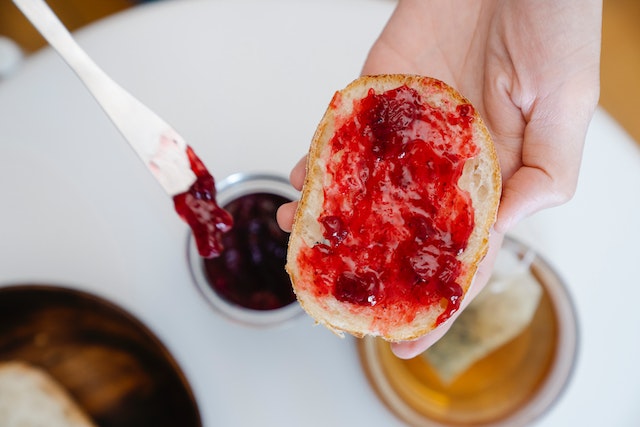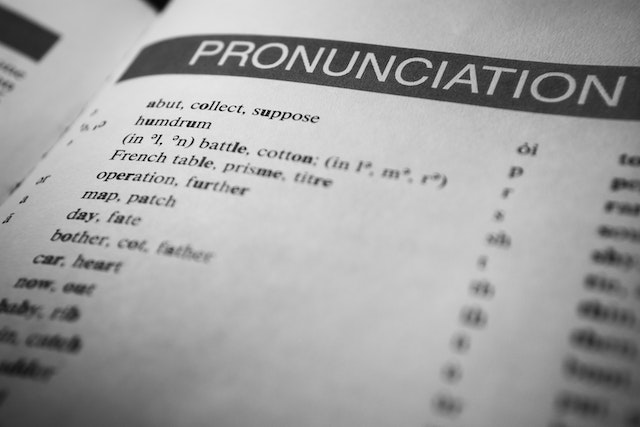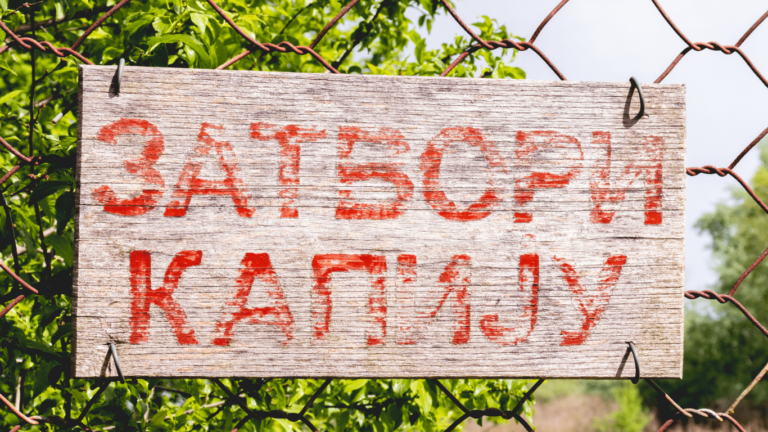Written by: Olivera Tolimir
Do you find yourself taking time to learn Serbian and thinking you’re doing fine but then not understanding a single word in the company of Serbs?
It’s a common occurrence when taking Serbian lessons for foreigners. You know, you learn all the polite and perfect Serbian phrases but then realize no one talks like that!
In real life, people use colloquial expressions more than they’re aware of, which isn’t a problem per se. The issue is that they’re often unaware that a foreigner can’t learn expressions like that from your usual Serbian lessons. For foreigners learning Serbian, it means getting confused and disappointed in their knowledge.
If you don’t want to be that friend anymore, check out our list of Serbian phrases that’ll amaze your Serbian buddies and family!

Nemam pojma!
Let’s start easy. Nemam pojma is a widespread Serbian expression easily translated into English: I have no idea!
There’s no need for further explanation!
Baš me briga! / Briga me!
Maybe you’ve heard this Serbian expression when your 5-year-old nephew didn’t like their mom’s instructions. It translates as I don’t care!
It’s not a polite response (just like its counterpart in English) if someone asks you to do something. However, if your acquaintance rudely points out that you embarrassed yourself for making a tiny mistake while speaking Serbian, be free to tell them: Baš me briga!
Not letting rude comments get to you is one of the crucail life (and Serbian) lessons. For foreigners, it can be tricky, since they don’t know language well enough to answer. But now you know – it’s enough to say Briga me!
Ma nemoj!
Ma nemoj is a colloquial Serbian expression to show disbelief or disagreement with someone. It literally translates as: Oh, don’t, but it works as a shorter version of the sentence: Oh, don’t tell me (Oh, yeah?).
If you use it seriously, it’s not very polite, but we often use it jokingly (ironically). For example, you have a friend who’s always late, and they claim to be on time tomorrow for sure. In that case, you can jokingly tell them: Ma nemoj! Hajde da vidimo i to čudo jednom. It means: Oh, yeah? Let’s see that miracle for once!
Gde si se izgubio? / Gde si se izgubila?
It’s an informal Serbian expression to ask a close person: Where have you been? However, it’s not so neutral in meaning. This expression shows our surprise that the person went somewhere at all or that they took so long to come back.
The phrase is often used at concerts, music festivals, and similar events where someone can unnoticeably disappear in a crowd. It literally translates as: Where were you lost?
The first option is masculine gender, and the second is feminine.
Lije kao iz kabla!
We use the Serbian idiom lije kao iz kabla when it’s raining cats and dogs outside. We’ve already mentioned this expression as one of the nine useful idioms in the Serbian language! It’s a regular phrase in small talk. We often talk about the weather with acquaintances since it’s a neutral ground where everyone usually agrees.
So, if you’d like to express your dissatisfaction with heavy rain, use this sentence. You’ll sound like a native!

Nema frke!
This sentence is a colloquial way of saying no problem (in Serbian: nema problema). It could be used to promise to a friend you’d do them a favor they’ve been asking for.
Ulepšao si mi dan! / Ulepšala si mi dan!
Use the first option when talking with a man and the second with a woman.
This beautiful Serbian expression means: You made my day! You can use it to show praise or gratitude towards someone. And by saying this, you’ll make their day, too. No one is immune to the words of appreciation!
Ma ti si car! / Ma ti si carica!
This funny Serbian phrase literally means: Wow, you’re an emperor! / Wow, you’re an empress!
It’s a colloquial expression used to show the highest level of praise to our friends. It’s completely informal, so don’t try to talk to your boss this way (or even your grandparents, they won’t appreciate it).
It’s usually used when one of our friends shares their success. For example, if your friend told you they completed a horrendous task and got promoted thanks to it, a suitable response would be Ma ti si car(ica)!

Kapa dole! / Skidam kapu!
These two expressions have the same meaning but slightly different forms. The first means: Hat down, and the second, I’m taking off my hat!
They date back to times when people used to wear hats every day and take them off as a sign of respect. Today, we don’t wear hats that much, but the expression has remained. We use it to show respect and fascination towards someone.
For example, when watching the world’s best sportsman break another record, we can use the Serbian phrase: Skidam kapu! But it can also be used on (objectively) less special occasions, when our friend or family member succeeds in something, for example, when they get a promotion.
Možeš na hleb da ga/je mažeš!
When we translate this sentence into English, it may sound funny. It means: You can spread him/her on bread!
Now, what in the PBJ sandwich does that mean?
This Serbian idiom is used to emphasize someone’s good nature. It means the person we’re talking about is extremely good and kind! This one you might learn during your Serbian lessons for foreigners, but it’s all the way at the B2 or C1 level.

Ko te šiša?
It’s a Serbian expression used exclusively among friends and peers. So, don’t try it on your parents, grandparents, or (oh, no, no, no) boss!
This sentence translates as Who cuts your hair? Now, you may be wondering why you shouldn’t ask your mom who her hairdresser is. It sounds like a compliment, doesn’t it? It would be like – I love your hair! Who’s your (awesome) hairdresser?
Think again. The above-mentioned Serbian expression is a rhetorical question: Who cares about you? Its true meaning is: No one cares about you (and I also don’t care about your opinion).
Pretty elaborate for such a short expression, isn’t it?
Ma daj, ne zezaj!
The Serbian phrase Ma daj, ne zezaj means Come on, don’t joke!
Funnily enough, we usually don’t use to tell someone to be serious. We use it to express disbelief or to tell someone to stop talking like that.
For example, if your friend is telling you elaborately how they won the lottery, you might use this Serbian expression. But you can also use it if your friend starts complaining about their inability to find love because they’re boring or something like that. You can say: Ma daj, ne zezaj! Ti si super, sigurno ćeš uskoro naći nekoga (Come on, don’t joke! You’re great, and will definitely find someone soon).
We bet you haven’t found this one in your textbook’s Serbian lessons for foreigners, either!
If you have questions about some other Serbian phrases you’ve heard, book the first of your individual Serbian lessons for foreigners here!



